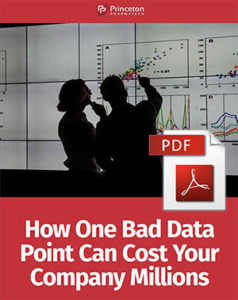Regulatory Compliance Has No Tolerance for Error

When it comes to selecting a biostatistical CRO, most sponsors choose to work with the cheapest proposal. But that’s a mistake and your organization will pay dearly for it in the long run. Not only does the lowest bid frequently come with a number of hidden costs and overages, there’s also the small matter of accuracy — and compliance. Accuracy, in the final analysis, should be the ultimate factor when deciding which CRO will conduct your biostatistical research. To use any other criteria is to gamble with your organization’s future.
Here’s a sobering number: It’s estimated that the cost to your organization for every day your new drug is delayed is $1 million. Let that sink in. One million dollars. Every day. And your new drug won’t be delayed by the FDA for a day or a week or even a month. It will probably be delayed by months. Plural. That’s tens of millions of dollars your company is hemorrhaging because you decided to go with the cheapest CRO rather than the most accurate.
The FDA approval landscape today is very stark. Only 22 new medications were approved in 2016. That’s down sharply from the previous year’s 45 and the lowest number since 2010. A JAMA study of drug rejections between 2000 and 2012 found that fully 40 percent of all rejected drugs were rejected not because they didn’t work or because the side effects were considered too risky but because the research had been conducted poorly. Opting for the least expensive CRO, rather than the most accurate, can easily throw your new drug into this domain of the 40 percent. It’s one thing to have to go back to the drawing board because your drug isn’t up to snuff. But do you want to spend tens of millions of dollars because your biostatistical CRO didn’t do its job properly?
Remember: Not only does the FDA have to see that your research is correct, they also have to check the work. This means your CRO not only has to be accurate, its methods also have to be accurate and, above all, repeatable every step of the way. The FDA won’t just take your word for it. You need a CRO who provide accurate results and a detailed account of how they arrived at those results. The least expensive CRO might be able to provide that, but their price says nothing about their track record of accuracy.
Princeton Pharmatech’s recent white paper “Small Inaccuracies Mean Big Calamities For Your Business” discusses in detail how your organization can select for CROs providing detailed, accurate and repeatable results to sponsors. Once mistakes and inaccuracies creep into your data they can be expensive or impossible to remove, so it’s crucial to get your biostatistical CRO right. What’s more, you can reuse data when it’s accurate, which means greater value for your money.
Read our recent white paper about why accuracy is the most important thing to consider when it comes to selecting a CRO. Then talk to someone at Princeton Pharmatech for a one-on-one briefing about the steps you need to ensure compliance for your FDA approval process.
Next Steps:
Read our analysis on other topics related to Getting FDA Approval.
Schedule a one-on-one call to see how we can help with you FDA Submissions.
See how Princeton’s services can help you.
Subscribe to our blog to stay up to date.
